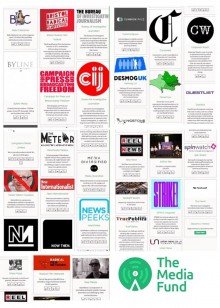Coverage of this week’s massacre of 60+ Palestinians has been predictably mixed.
While the right-wing press was fairly quick to go along with pushing an Israeli narrative. The Daily Mail did at least splash a large “bloodbath” headline on the front page.
Some liberal platforms, such as The Guardian and Channel 4 News have been fairly critical of Israel, though CNN in the US referred to the incident merely as a “crackdown.”
The Canary has featured this handy round-up of some of the contortions doing the rounds, as outlined by a human rights lawyer to CBS.
Dorset Eye also has a good write-up of the events.
As usual, many have been critical of the BBC for it’s timidity in criticising Israel. Three days on from the horror their website ponders the insightful question: “Did Israel Use Excessive Force?”
A legitimate comparison has been made between the scale and nature of the mass shooting of around 50 people known as The Sharpeville Massacre of 1660 under the South African Apartheid regime.
A look back to coverage from the time s instructive as to how the BBC instinctively and subtly tilted analysis in favor of the murderous and racist regime.
The headline refers to a “shootout” – strongly and inaccurately implying gunfire from both sides. The article only describes the original demonstration against the reviled Pass Laws as peaceful in inverted commas. It cites government forces as blaming the violence on stone-throwers. Later Apartheid quotes in the piece, pretty much about “natives” asking for trouble are beyond even what many Likud politicians would say, at least in public.
Though such bias may not be as strong in modern coverage of Israel/Palestine affairs, some of the patterns are still present.
With hindsight, the BBC came to realise such mass killings were actually reprehensible and the South African government were generally bad eggs, but it was not ever thus. those who recall 19080s reports of the nation strife know how muchcredibility was given to the uttering of far-right politicians like President PW Botha. Even liberal voices fought an uphill battle in an atmosphere where many in the UK elite had links and sympathies with the apartheid regime and economy. All this was a generation before the establishment declared Mandela a heroic icon of the age.
Similar parallels can be drawn with original coverage of Bloody Sunday in 1972, when British soldiers shot dozens of protesters in Derry and a slew of disinformation was doled out by the state, via establishment media, to make it look like maybe it was the fault of all those dead people. For those who have been understandably angry at this weeks coverage, it’s as well to keep in mind that it’s nothing new.
This Gaza massacre is just the latest in a recent series, often dealt with in a tepid-at-best fashion by establishment media, rather like the ongoing butchery in Yemen undertaken by Saudi Arabia.
Perhaps it’s no coincidence that Israel, Saudi Arabia, South Africa and Northern Ireland are all steeped in a history of British imperialism, meddling, and gerrymandering.
The search for peace in the Middle East seems depressingly forlorn, not least with Trump trusting his out-of-depth son-in-law to try and sort it out.
At times like this, voices for peace and reconciliation need to be given a much higher profile. They certainly exist on all sides. The lack of weight afforded to them could lead a skeptic to think that there’s too much to gain across the spectrum, among the most hawkish the most hawkish elements of Iran / Hamas and US / Israeli imperialism to allow even a chance for significant steps in he right direction to be taken.
Stephen Durrant












